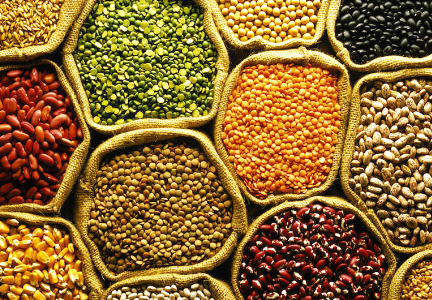By Lerato Ndlovu
The world yesterday commemorated world pulse day, as an opportunity to raise awareness of the nutritional benefits of pulses and their contribution to sustainable food systems and world without hunger.
The United Nations General Assembly proclaimed 10 February as the World Pulses Day.
This year’s celebrations were led by the Food and Agriculture Organization of the United Nations (FAO), as a way of increasing public awareness of the nutritional and environmental benefits of pulses as part of sustainable food production.
According to FAO Pulses are critical in addressing the challenges of poverty, food security, human health and nutrition, soil health and environment, thereby contributing to the Sustainable Development Goals and the Food and Agriculture Organization’s (FAO) Hand-in-Hand Initiative.
“In many countries, pulses are part of the cultural heritage and are consumed on a regular or even daily basis. In other parts of the world, they hardly garner a mention except when served in a soup on a cold winter’s day. However, these tiny, multi-colored seeds have been one of nature’s nutritious foods since time began.
“Pulses, also known as legumes, are the edible seeds of leguminous plants cultivated for food. Dried beans, lentils and peas are the most commonly known and consumed types of pulse,” it stated.
“Staple dishes and cuisines from across the world feature pulses, from hummus in the Mediterranean (chick peas), to a traditional full English breakfast (baked navy beans) to Indian dal (peas or lentils).
“Pulses do not include crops that are harvested green (e.g. green peas, green beans)—these are classified as vegetable crops. Also excluded are those crops used mainly for oil extraction (e.g. soybean and groundnuts) and leguminous crops that are used exclusively for sowing purposes (e.g. seeds of clover and alfalfa),”
.It goes on to read that pulses are a vital and generally inexpensive source of protein. They are full of vitamins and minerals that can help prevent diseases like diabetes and coronary conditions. Planet-wise, pulses are good for soil health, and many are also drought resistant and climate-resilient, their genetic diversity helping them adapt to changes in climate.
The celebration this year under the theme #LovePulses for a healthy diet and planet was be an opportunity to raise awareness and recognize the contribution of pulses to sustainable food systems and healthy diets. The event will took place virtually in adherence of World Health Organisation (WHO) Covid-19 protocols.
